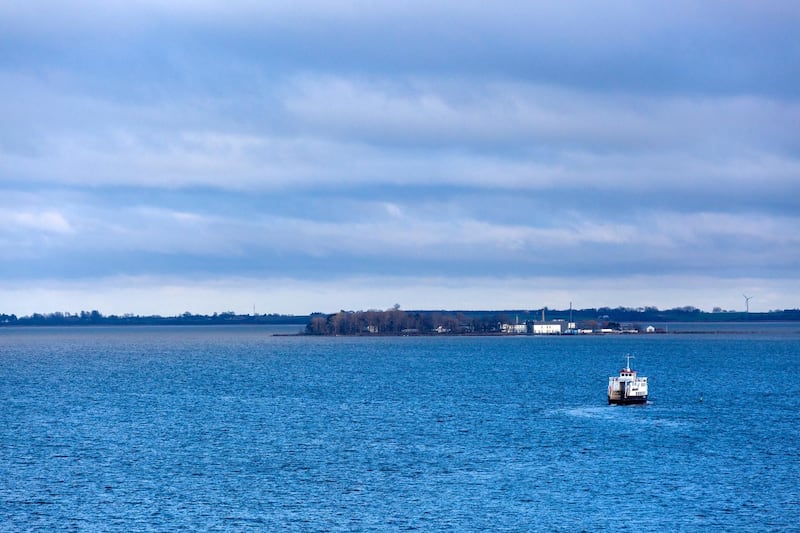For years, Denmark has enjoyed a top five ranking in the World Happiness Report. That the experience of migrants and asylum seekers in the country stands in such stark contrast to its citizens is Copenhagen's great shame. As The National reported, the centre-right ruling coalition, which depends on the far-right Danish People's Party (DPP) to pass legislation, has revealed plans to banish certain migrants to the remote island of Lindholm.
The island will be, in effect, an open-air prison for its 125 inhabitants, who cannot return home because they face torture or execution, from 2021. Residents - those who have criminal records or have had their asylum applications rejected - will be allowed to leave during the day but must sleep there.
As UN human rights chief Michelle Bachelet said: “Depriving them of their liberty, isolating them and stigmatising them will only increase their vulnerability.” Her pleas, while important, will fall on deaf ears. The harshness of this policy aims to dehumanise migrants and by rounding them up in isolated camps, it will render them invisible in a place where they will feel neither the compassion and humanity of ordinary citizens, nor act as a visible reminder of society’s responsibility. As Danish immigration minister Inger Stojberg wrote: “They are undesirable in Denmark and they must feel it”.
Denmark, like many countries in Europe, has hardened its immigration policies since an influx of migrants and refugees fleeing war and persecution arrived on European shores in 2015 and 2016. A total of 39,000 have arrived in Denmark since 2011, compared to Sweden’s 267,000, but nevertheless, they have become the targets of a ruthless campaign by the DPP.
This is in common with the disproportionate influence of right-wing minority parties in Europe, from UKIP in Britain to Germany's AFD. The DPP rejects Denmark's "transformation to a multi-ethnic society" and its fingerprints are visible in a series of policies, from the recent ban on the niqab to a 2016 law allowing immigration officials to seize possessions from asylum seekers to pay for their presence in the country.
With the latest proposal to transform Lindholm into an offshore prison, there are parallels with Australia’s cruel holding of refugees in detention centres on the Micronesian islands of Nauru and Manus for months at a time, a treatment described by Medecins sans Frontieres as being “worse than torture” and leading to nearly one third attempting suicide.
A similar mental health crisis erupted among the 6,000 inhabitants of Moria, Greece's largest refugee camp, where children as young as 10 have tried to take their own lives and two-thirds suffer from depression.
The journey undertaken by migrants and refugees is often treacherous and taken as a desperate last resort. The idea that they could be treated in such an inhumane way on arrival in Europe should be a source of immense shame, not the badge of honour it appears to be in Copenhagen.





